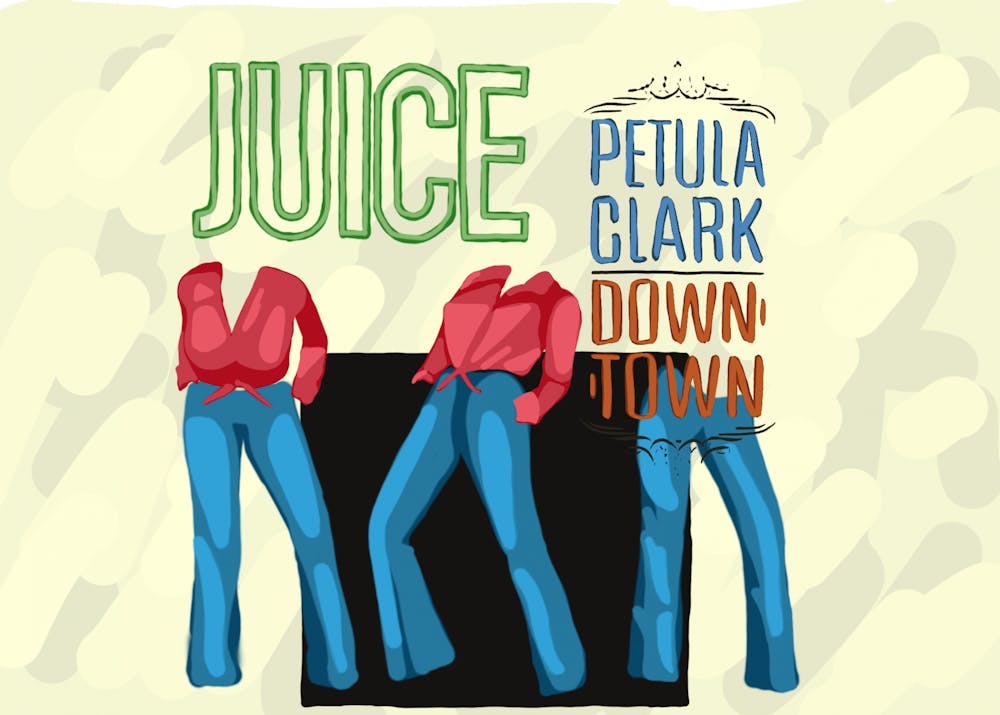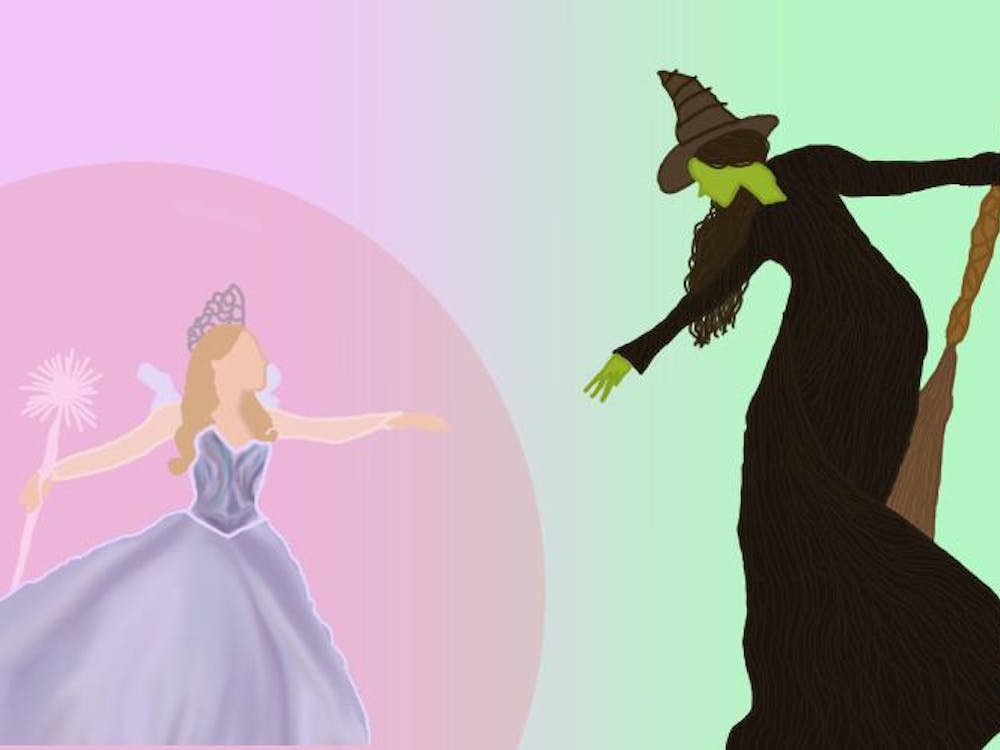中文版请点击此处
Students are back on Grounds with a renewed sense of purpose — 2023 is here. As we get thoughtful about the experiences of the past 12 months and get excited about the 12 months to come, these sentimental songs make the perfect background noise for self-reflection. Let their big emotions and “soundtrack to your life” sounds carry you into the new year.
“Downtown” by Petula Clark
When English songwriter Tony Hatch first visited New York City in 1964, he was struck by the
electric atmosphere. “Downtown”— his ode to the city — was recorded by Petula Clark and released later that year.
Backed by a dense and dramatic orchestra, Clark sings that “When you’re alone and life is making you lonely / you can always go downtown.” Hatch noted the creative challenge of appealing to both young listeners and Clark’s primarily older fanbase in producing “Downtown,” and these conflicting goals inform the song’s tone — its direct lyrics and theatrical sound don’t feel especially youthful, but the song’s earnestness resonated irrespective of age group. “Downtown” may be slightly uncool but it’s also super fun.
Clark carries the song with her pretty, powerful voice, reassuring listeners that “you can forget all your troubles, forget all your cares.” Give it a listen, and go into the new year unburdened of your own troubles and cares.
“Angel of the Morning” by Juice Newton
Songwriter Chip Taylor wrote “Angel of the Morning” in 1967, and since then the song has seen innumerable re-recordings. First released with Evie Sands in 1967 and first charting with Merrilee Rush in 1968, the song would go on to be covered by everyone from Nina Simone to Oliva Newton-John. Juice Newton’s 1981 version eventually emerged as the standout in terms of popularity.
“Angel of the Morning” is dynamic — Newton starts out softly with the plaintive “There’ll be no strings to bind your hands / Not if my love can’t bind your heart,” before building to an energetic chorus, “Just call me angel of the morning, angel / Just touch my cheek before you leave me, baby.” Like “Downtown,” its tone is stirring and self-serious, making it both a bit embarrassing and determinedly moving.
Listen to Newton’s message of moving on, and in the coming year, let’s try to become a bit less self-conscious in our vulnerability.
“You Don’t Have to Say You Love Me” by Dusty Springfield
Dust Springfield discovered “Io che non vivo (senza te)” at a 1965 Italian song contest and was completely floored. After obtaining the rights, Springfield opted not to translate the original Italian and let friends Vicki Wickham and Simon Napier-Bell come up with their own English lyrics. The song was released in 1966 as “You Don’t Have to Say You Love Me” and hit number one in the UK and number four in the US.
Wickham and Napier-Bell conceived of “You Don’t Have to Say You Love Me” as a sort of anti-love song, and this is reflected in its uncommonly discerning take on love. Springfield sings, “I can’t help but love you / but believe me / I’ll never tie you down.”
The subject of the song despairs of her situation, singing that “All that’s left is loneliness / There’s nothing left to feel,” but the tone of the song is not despairing. Springfield’s sure voice imparts the grace in the subject’s acceptance of loss, making it a fitting message for this liminal phase dividing past and future.
“Here You Come Again” by Dolly Parton
Dolly Parton was able to transition from a strictly country sound to appeal to wider pop audiences with her 1977 single “Here You Come Again,” representing one of the few hits she didn’t write for herself.
Though originally conceived as a pop song by writers Barry Mann and Cynthia Weil, Parton brought in a country influence through the use of a steel guitar, and “Here You Come Again” would ultimately top the country singles chart and achieve top ten in the pop singles in the US. There are also no less than four modulations in key throughout the piece, advertising Parton’s vocal skill as she expertly navigates the song in a clear, sweet voice.
“Here You Come Again” is a song about patterns, balancing reticence and openness as Parton sings, “Here you come again…shaking me up so that all I really know / is here you come again / and here I go.” It’s the perfect listen for January self-assessment, weighing the missteps of the past with possibilities of the future.
The new year comes with a great sense of anticipation, the excitement of leaving one phase behind and moving into the next. Tune in to these sentimental songs to let yourself feel through this major transition, and have a great 2023!







